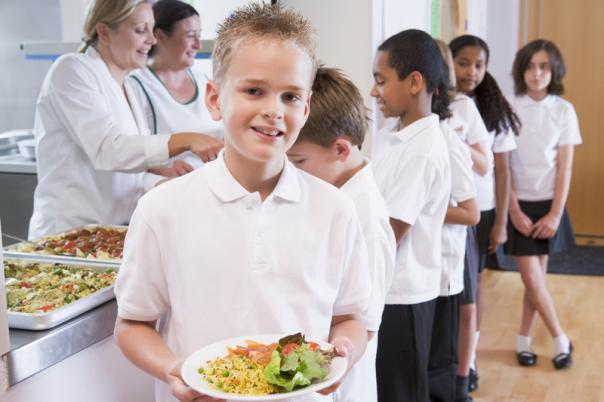
In a webinar on October 24th, they backed the reports call for Government tackle the underfunding of school meals that is compromising the quality and even pushing schools into deficit.
The report found that the current funding rate of £2.53 per school meal in England, for example, is 63p below what is needed, making the ‘true cost’ £3.16.
The charity School Food Matters commissioned research to compare the Government’s allocated school meal funding with the actual costs of serving nutritious and sustainable meals.
The research behind the report was conducted by Bremner & Co together with Cohesion. They key recommendation is that Government increases the per-meal funding rate to £3.16. This includes £1.16 for food, £1.66 to employ an appropriately skilled team, 32p for overheads and an additional 2p earmarked for quality assurance.
At the webinar School Food Matters founder and chief executive Stephanie Slater said the report had been commissioned because school caterers kept telling us there wasn’t enough money in the system to support a school meals service that has to meet the School Food Guidelines, cover costs, and be attractive enough to children to keep uptake numbers high enough.
It was the first time the exercise had been done since the School Food Plan, which was launched more than ten years ago.
She said: “School meals offer an unrivalled opportunity to benefit both the health and attainment of children.”
Sharon Hodgson, chair of APPG on School Food, told the webinar: “The new Labour Government is focused on a fully-funded roll-out of school breakfast clubs across England, which has already been shown in places like Wales to improve attendance, attainment and behaviour.
"The report highlights strategies such as auto-enrollment and the ring-fencing of school food funding to help the school meals service. I would prefer universal free school meals, as you know, but we should continue to be ambitious and I will continue my advocacy of this important cause [school meals].”
Bethan Cullen, operations director at Institute of School Business Leadership, joined the webinar to make the point that school food ‘is essential to delivering effective learning’ and the funding shortfall was making this task more difficult.
“As an organisation we would like to see auto-enrollment increased, which might go in some small way to supporting the quality of delivery of the food service.
“Our members say that some school are actually looking to subsidise the school meals service, trying to find ways they might do that by moving funding from other areas or simply not investing in other resources. It’s just part of the wider funding pressures on schools that are forcing them to make difficult decisions, and we don’t want to see that happening to school meals.”
She added that some service providers were already warning that it was becoming uneconomic to continue to contracts at the current unsustainable rates of funding.
“Our members worry who, then, will help schools deliver a meals service.”
Leah Gardner, she heads the Hunger-Free Schools Campaign in Minnesota, explained how her work had helped to shape the state’s policy of free school breakfasts and lunches that was brought in by Govenor Tim Walz, now the Democratic Party vice-presidential candidate in the US election.
She said they first worked closely with the children and parents in families that had experienced food insecurity to ask them what would most help them.
“We were helped by the fact there was US-wide free school meals for two years during the pandemic, and we decided that we couldn’t then let things go backwards. The impact is real and we will continue to monitor it and report on the results,” she promised.
Steve Chalke, who heads the Oasis Academy Trust, said: “Good nutrition is a recipe for success. We know it improves brain development, that’s not a claim it is a fact backed by science.
“Poor nutrition, on the other hand, affects concentration, which affects engagement, we then see attainment drop and then attendance is affected.
“It's a fact that 25% of children in this country aged ten are living with a dietary-related condition, and this affects not just behaviour but health and life chances. Good food for children saves money, it’s an investment worth making.”
Brad Pearce, chief executive of CATERed, the Plymouth school meals cooperative, and vice-chair-elect of LACA, also chaired the report’s advisory group.
He told the webinar: “We must continue to get the message across that the £2.53, or £2.58, that we get in England, for instance, is not just for food. It also covers food sourcing and procurement, ordering, food preparation, and cleaning and maintenance.
“In LACA member surveys we have seen clearly that food and staff shortages are forcing some school kitchens to compromise of fresh food and variety on their menus.
“This can affect the attractiveness of school meals to children and parents, and when they stop taking meals it has an effect on staff morale, on kitchen skills, and the drop in meal take-up can make a service no longer economic to run.”
And Myles Bremner of Bremner Consulting said that the meal service in small schools was particularly at risk, and this had been recognised in the School Food Plan because they received a ‘small schools supplement’.
Since then, though, he said the break-even point for a school meals service had risen to about 150 meals a day, which meant many more schools were now in a very precarious position.